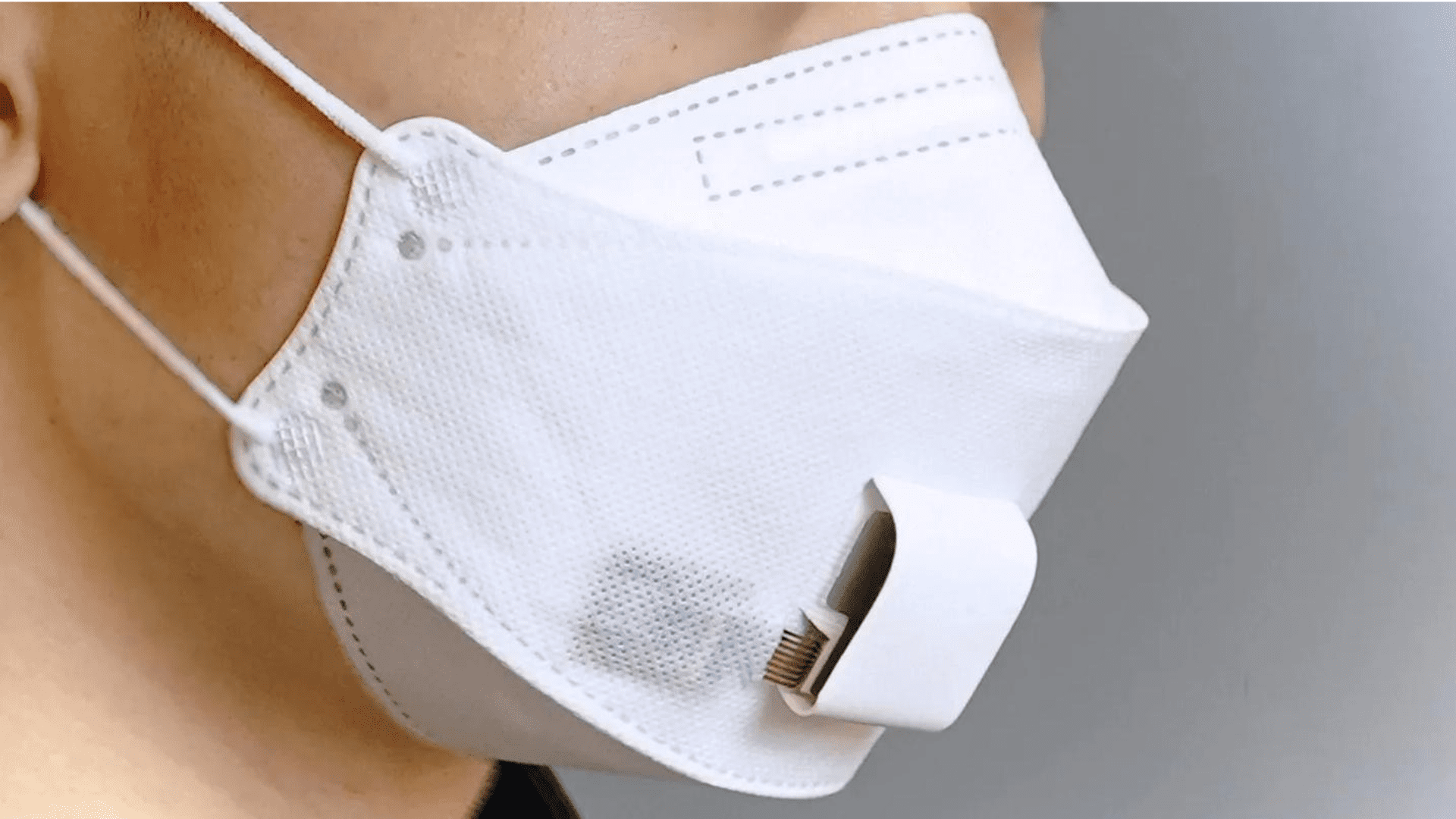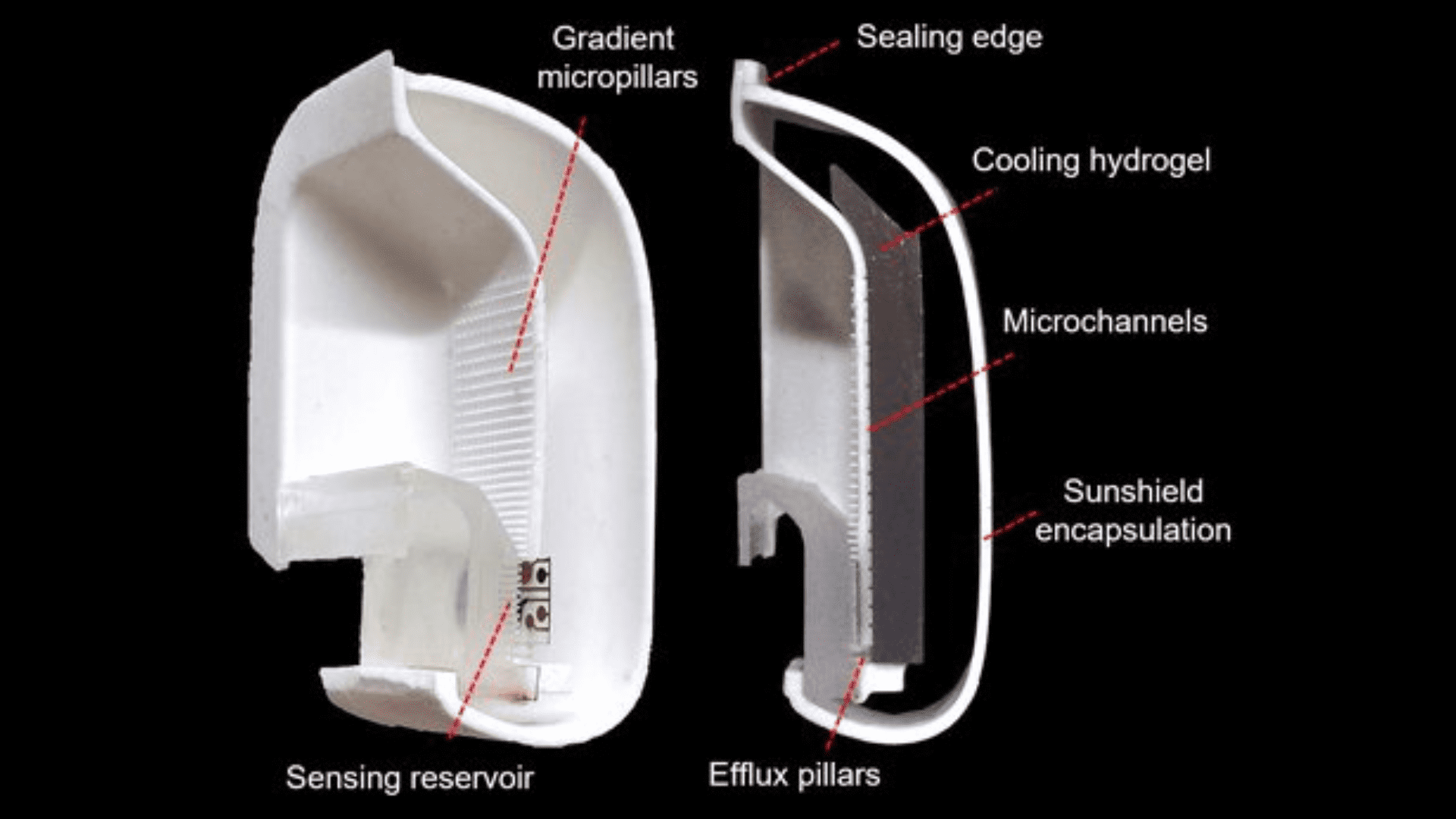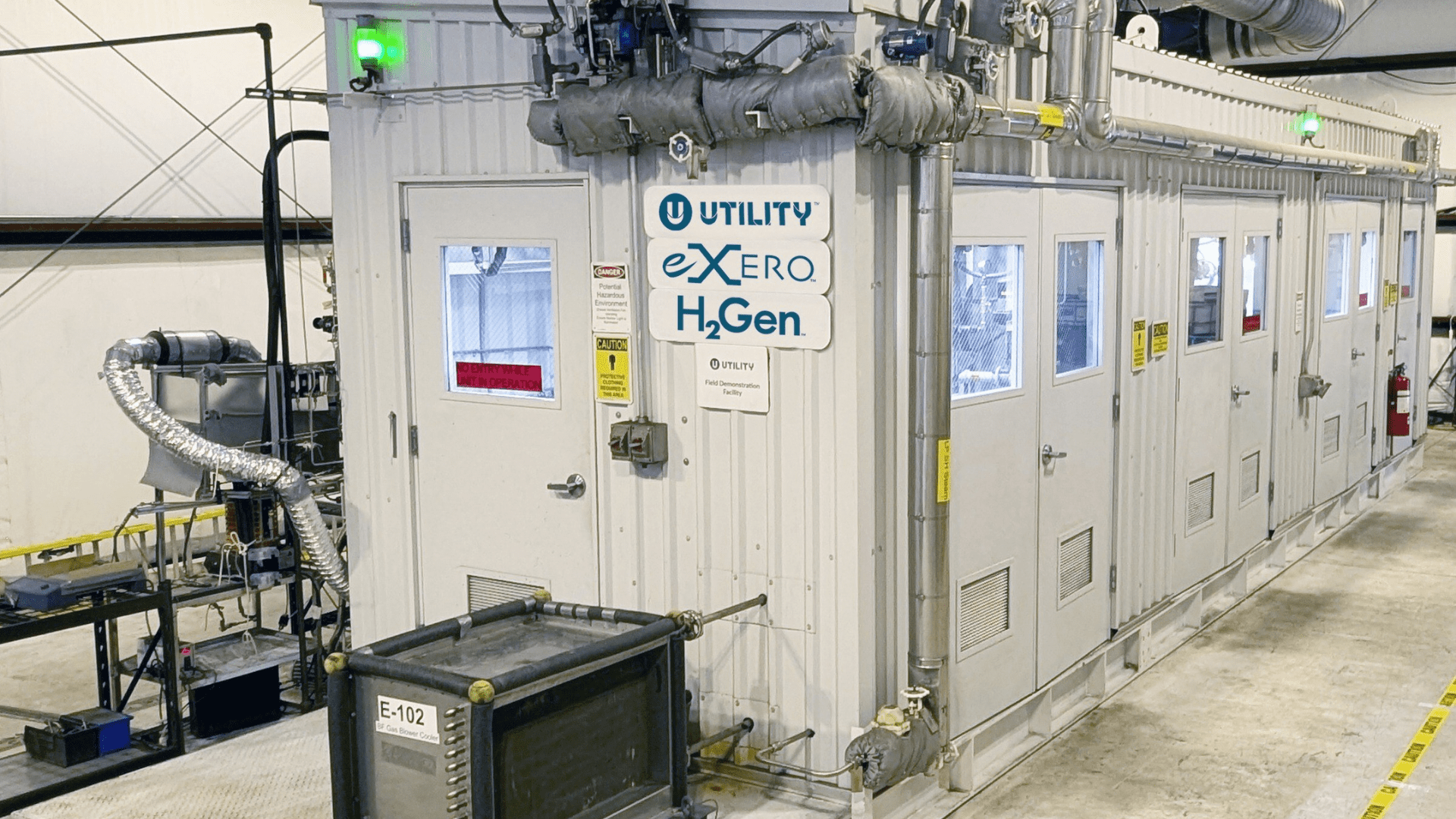Our breath says a lot about us, which extends to our health. Scientists say each breath contains several compounds, including biomarkers for disease or lung conditions. Researchers at the California Institute of Technology developed a “smart mask” to monitor our breath and detect diseases.
Smart Mask

Caltech’s new “smart mask” could help doctors monitor signals continuously and noninvasively. Patients could wear the mask at home and monitor their own levels, and then a doctor could do the same if there’s a flare-up and the patient needs to go in for a checkup.
“They don’t have to come to the clinic to assess their inflammation level,” said Wei Gao, professor of Medical Engineering at Caltech and one of the creators of the smart mask. “This can be lifesaving.” The smart mask’s two-part cooling system chills the user’s breath, which turns each breath into exhaled breath condensate (EBC).
EBS is essentially a liquid version of someone’s breath and is easier to analyze. Plants’ capillary abilities inspire the mask’s design. It uses a series of microfluidic modules that push the EBC fluids toward the mask’s sensors. The sensors connect to a phone or smart device via Bluetooth, which allows the patient to have real-time readings.
“The biggest challenge has always been collecting real-time samples. This problem has been solved. That’s a paradigm shift,” said Rajan Chakrabarty, a professor at Washington University in St. Louis, who was not involved in the research.
Testing the Mask

The Caltech team tested the smart mask with patients. Several of the patients in the study suffered from chronic obstructive pulmonary disease (COPD) or asthma or just got over a COVID-19 infection. They tested comfort and breathability but also wanted to see if the mask worked. The team wanted to see if the mask could successfully track biomarkers throughout a patient’s daily activities.
During the study, the masked picked up higher nitrite levels in patients with asthma or other conditions with inflamed airways. They also picked up alcohol contents after a patient went out drinking, opening up another potential use for the smart mask. Researchers hope this is just the beginning. They want to test the smart mask on a larger population and eventually make it commercially available for a wider population. In addition, they hope to slot in different sensors that pick up different biomarkers.
“What I would like to be able to do is take off their sensors, put in my sensors, and this becomes the building block for doing all other types of development,” said Albert Titus, a professor at the University of Buffalo and who wasn’t a part of the Caltech research team. “That’s where I’d like to see it go.”
There is potential for the mask to measure ketones in the breath, a high level of which is a sign of diabetes. As a result, the mask could help people with diabetes monitor their condition.
“The mask can be reconfigured for many different applications,” said Gao.







